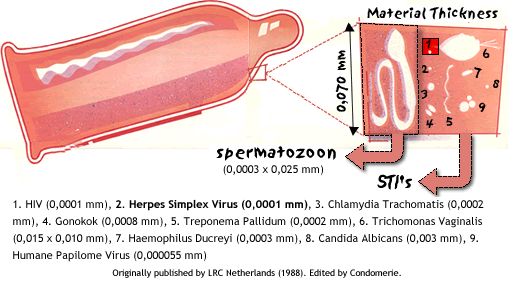Genital Herpes

Genital herpes is caused by the herpes simplex virus. This STI is characterised by recurrent attacks of blisters or painful ulcers near the genitals. You can become infected by coming into contact with infected skin or with the mucous membrane (lining) of the mouth, penis, vagina or anus of someone who has the infection. Many people are not aware that they have been infected with herpes. But they can still pass it on to their sexual partners. Herpes is extremely infectious. Particularly when someone has blisters, sores or ulcers, but even if you can’t see anything is wrong.
Symptoms
- Blisters and painful ulcers in, on or near the penis, vagina, anus or cervix
- Itching
- Pain in affected areas of the body
- The groin is very sensitive
- Burning feeling when passing urine
- More or a different kind of vaginal discharge
- Fever, headache and aching muscles (often during the first attack)
The symptoms will disappear but the virus will never go away completely once you're infected. People with herpes have an average of 4-5 attacks a year. Mostly at moments when their resistance is low due to something like flu, stress or their period. Drugs are available that can reduce the symptoms.
Safe Sex
Use a condom for vaginal, anal and oral sex. Use a dental dam for licking the vagina or anus (rimming), even if you can't see any blisters. A condom or dental dam will not always cover the whole infected area. So be particularly careful during an attack! Also take care when sharing sex toys and avoid any unprotected genital contact (even using your hands). You can never completely protect yourself against genital herpes, but you can reduce the risk of infection by being careful and always having protected sex.